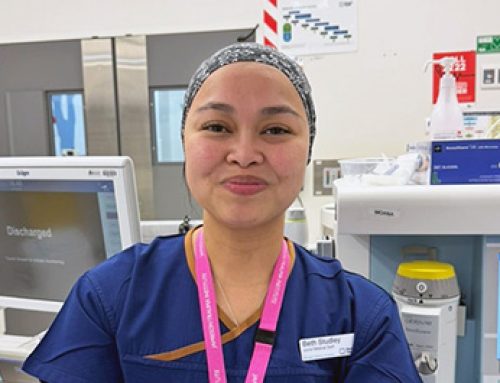Designing a health care model for pregnant women with heart disease
By Gayani Amarasinghe, AusHSI PhD Scholar

The greatest inspiration for my career has always been an interest in health during pregnancy, wanting to make it safer and better for women and families. Starting out as a public health physician in a remote setting, my research explored the epidemiology of maternal nutritional issues. I lobbied for evidence-based policies to address health problems and developed interventions to improve maternal mental health access, while being driven by decolonising approaches to empowering communities to own their health.
My experience has shown me the importance of adopting a holistic view, seeing the person rather than a disease. There is a need to advocate for equity in maternal health provision: leaving no one behind to enable safe motherhood and, ultimately, a healthier society. This approach has been crucial to starting my PhD journey in Australia and gathering evidence for establishing a woman-centered multidisciplinary care model for pregnant women with heart disease.
Maternal heart disease can put pregnant women and their babies at a higher risk of different health complications, including death. Providing them with high quality, evidence-based health care is crucial to preventing these complications. But this can be challenging because it’s not only their heart and pregnancy that need to be safeguarded, but also their overall physical and mental health.
The best way to achieve this is to have care provided by a group of health professionals from multiple disciplines. However, this can pose challenges, such as determining how all of these professionals can provide high-quality care without overburdening expectant mothers with increased health care appointments, and ensuring effective communication to make appropriate clinical decisions. There are other questions, too, that are yet to be answered, including whether the health system would be overburdened by this multidisciplinary care, what would be the cost and who will bear it, and what are the care provision preferences for pregnant women with heart disease.
I am using a mixed methods design to find answers to these questions. Qualitative methods will be used to explore the experiences of pregnant women with heart disease. Another exciting methodology that I will use is a discrete choice experiment, which will enable me to investigate the characteristics women prefer in a multidisciplinary care model. Finally, I will examine the enablers and barriers to implementing the most preferred model through discussions with health professionals and managers.
My PhD journey so far has been a fulfilling experience, providing opportunities to acquire knowledge and skills to use new research methodologies, work in different health systems and engage with diverse sociocultural contexts. The level of support from my PhD supervisors, the staff at AusHSI and fellow higher-degree research students has been incredible. Pursuing a PhD requires strong and persistent commitment, along with the resilience to face the challenges that may arise. A wise move is to let your passion guide you in choosing the focus of your work and deciding who you surround yourself with during this journey. I look forward to seeing how my PhD journey shapes my future.







